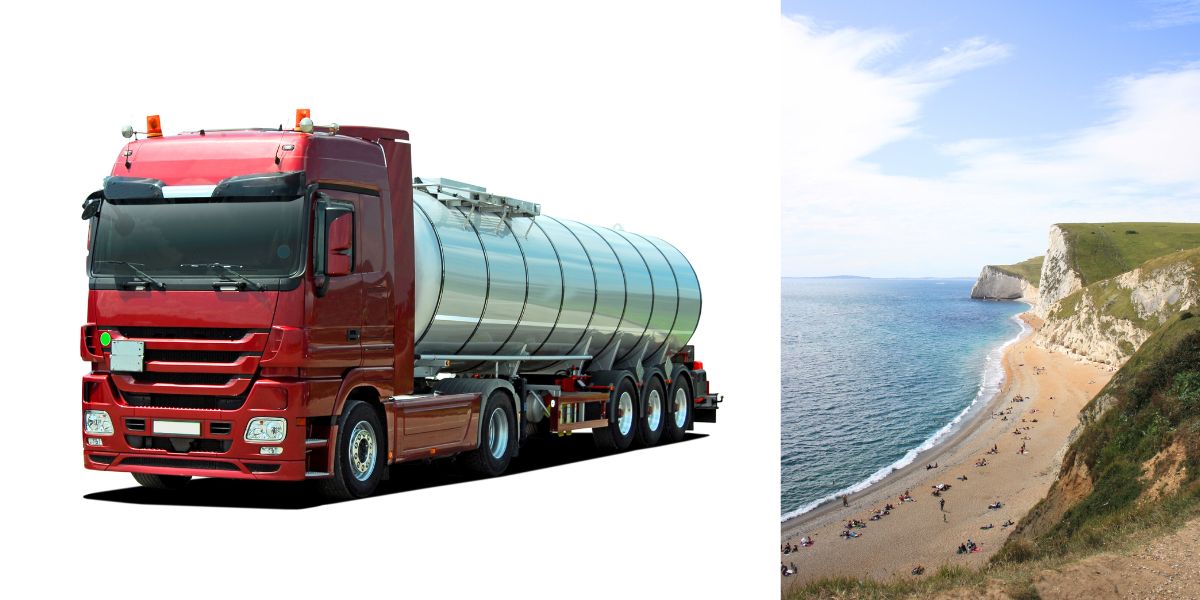Some easy-to-follow videos of the B.Smart fuel dispensing software in service, listing drivers, and setting up smartphone apps. Watch from the top first to the lowest video.
White Diesel Supplier Essex
White Diesel Supplier Essex
Are you are looking for a white diesel supplier in Essex area? We can assist with delivery between 500 and 36,000 litres from Braintree to Basildon.

LubiQ Fuels is a family-run company offering HVO and white diesel Essex in amounts from a 20 litre jerrycan to a bulk delivery via road tankers with ADR trained tanker drivers.
Our tanker deliveries start at 500 litres per drop of this crucial fuel; it is not too much to say that the whole UK economy moves on diesel fuel in cars and trucks or in industrial compressor and generator uses. Call us if you need fuel from Clacton to Saffron Walden today.
We can also help you with E10 petrol fuel to EN228 spec and HVO renewable diesel (hydrotreated vegetable oil) which is ideal if you are working in the low emission city centre zones or just wish to reduce your diesel emissions and improve air quality.

Due to its high purity, HVO burns cleaner than mineral white diesel which considerably cuts air pollution and ensures less DPF filter blocking in your exhaust system.
Please get in touch to discuss any needs you have so that we can be ready to deliver your white diesel fuel and reach out on 01324 309100 or email us at: oil@lubiq.uk
White Diesel Bristol
White Diesel Bristol
Are you are looking for white diesel in Bristol or Avonmouth? We can assist with delivery between 500 and 36,000 litres throughout Hanham or Bedminster.

LubiQ is a family run bulk fuels firm offering HVO and white diesel in amounts from a 20 litre jerrycan to a bulk delivery via road tankers with ADR trained tanker drivers.
Road tanker deliveries normally start at 500 litres with an upper limit of 36,000 litres per articulated tanker; it is not too much to say that the whole UK economy moves on diesel fuel in cars and trucks in these days of e-commerce fulfilment.
We can also help you with E10 petrol fuel Bristol to the EN228 specification, and HVO renewable diesel (hydrotreated vegetable oil) which is ideal if you are working in the low emission city centre zones or just wish to reduce your diesel emissions.

Due to its high purity, HVO burns much cleaner than mineral diesel which considerably cuts air pollution and ensures less DPF filter blocking in your exhaust system.
Please get in touch to discuss any needs you have so that we can be ready to deliver your white diesel fuel and reach out on 01452 470016 or email us at: oil@lubiq.uk
White Diesel Bournemouth And Poole
White Diesel Bournemouth And Poole
Are you are looking for white diesel Bournemouth, Weymouth and Poole? We can assist with delivery between 500 and 36,000 litres throughout Dorset.

LubiQ Fuels is a family run firm offering HVO and white diesel in amounts from a 20 litre jerrycan to a bulk delivery via road tankers with ADR trained tanker drivers.
Road tanker deliveries start at 500 litres with an upper limit of 36,000 litres per articulated tanker; it is not too much to say that the whole UK economy moves on diesel fuel in cars and trucks so give us a try.
We can help you with kerosene heating fuel, E10 petrol fuel to EN228 specification, and HVO renewable diesel (hydrotreated vegetable oil) which is ideal if you are working in the low emission areas or just wish to reduce your diesel emissions.

Due to its high purity, HVO burns much cleaner than DERV which considerably cuts air pollution and ensures less DPF filter blocking in your exhaust system and less use of AdBlue urea fluid.
SEE OUR WHITE DIESEL FOR SALE HERE
SEE OUR HVO RENEWABLE DIESEL HERE
Please get in touch to discuss any needs you have so that we can be ready to deliver your white diesel fuel to Christchurch, New Milton or Bournemouth.
Please reach out on 01324 309100 or email us at: oil@lubiq.uk
A key visitor attraction in the Purbeck and Swanage area is the Swanage Railway; see more on this in this steam heritage railway on the video below:
Diesel Fuel For Festivals
Diesel Fuel For Festivals
We are family run suppliers of diesel fuel for festivals, events, and weddings including HVO fuel or white diesel for generators, pumps, and vehicles.

Wherever you are in the country we can assist with HVO diesel fuel for festivals or normal white diesel from 500 litres up to 38,000 litres in road tankers.
One thing you do not want is for power to audio, catering, and lighting systems to fail on the big day or big weekend, this shows the critical importance of diesel generators to support your event or festival.
The specification for our normal white diesel is EN590 and for HVO renewable diesel fuel is EN15940; the logo for DERV is B7 and for HVO is XTL; the principal benefit of DERV is that it is cheaper whereas the advantage of HVO is the substantial cut in carbon and particulate matter emissions from the generators.
So how does HVO diesel work to cut emissions? Well, another name for HVO is ‘renewable diesel’ and this tells a story because the fossil-free nature of this synthetic fuel is because it is made from waste products like used cooking oil or rendered fats and thus is the circular economy in action.

Due to the high purity and low sulphur of HVO fuel it burns considerably cleaner than normal diesel fuel which considerably cuts air pollution and produces less PM emissions and smoke.
Download a data sheet for HVO fuel here
Please get in touch with us to discuss your festival event with us so that we can get organised and ready to deliver your diesel fuel; reach out on 01324 309100 or at oil@lubiq.uk
Wholesale Fuels Supplier
Wholesale Fuel Supplier
We are a family run supplier of wholesale bulk fuels like E10 petrol and B7 diesel for forecourts, hauliers, buses, local authorities and kerosene for heating fuel.

Forecourts need products made to British standard EN228 petrol E10 (with 10% bioethanol content) or EN590 B7 white diesel (with 7.25% FAME biodiesel) to keep the British economy moving.
An increasingly popular option is EN15940 HVO renewable diesel, this is a paraffinic synthetic fuel that is made from waste products and thus is a low carbon diesel fuel.
Literally millions of cars, bikes, vans and trucks utilise fuel every day to delivery foods, electronics and other supplies. Bulk fuels are supplied in quantities from 500 to 38,000 litres per tanker which are delivered promptly and safely to your site.
We use only ADR trained tanker drivers with the correct 3YE 1203 or 3Y 1202 orange plates
We can support independent sites or chains and deliver in bulk to farms, plant hire, industry sites and domestic houses with kerosene home heating fuel by arrangement.

Despite much discussion around EVs the logistics and farming game will require high quality hydrocarbon fuels for many years to come.
In the case of large users like trucking, plant hire, and crane companies, you can source bulk fuels at a lower price than at a forecourt or via a fuel card.
To discuss your needs please get in touch at 01324 309100 or email us at: oil@lubiq.uk
Fuels Supplier For Petrol Stations
Fuels Supplier For Petrol Stations
LubiQ is a supplier of bulk wholesale fuels for forecourts and petrol stations like E10 petrol, HVO diesel fuel, and white diesel (DERV) all over the UK.

We are a family run company that specialise in bulk delivery to retail outlets like supermarkets, motorway services, and other forecourts that need EN228 petrol or EN590 B7 diesel
We use ADR trained tanker drivers complete with 3YE 1203 or 3Y 1202 orange plates. Wholesale fuels are supplied in quantities from 500 to 38,000 litres per tanker which are delivered promptly and safely to your site.
LubiQ Fuels can support independent sites or chains and deliver in bulk to farms, plant hire, industry sites and domestic houses with kerosene fuel by arrangement.
Despite the discussion around battery vehicles the logistics, farming, and indeed family transport game will require high quality hydrocarbon fuels for many years to come.

Forecourts remain a critical part of our road network from the safety point of view offering tyre checking, food and drink shops, toilets and de-icing chemicals among other products.
Let us quote for bulk wholesale petrol or diesel fuels for your outlets!
Download a specification sheet for E10 unleaded petrol
To discuss your needs please get in touch at 01324 309100 or email us at: oil@lubiq.uk
Petrol Suppliers Cumbria
Petrol Suppliers Cumbria For Petrol Stations
We are family-run bulk petrol suppliers for Cumbria and the northwest England for speedy and safe delivery of unleaded E10 petrol fuel that meets the EN228 specification.

Talk to us about your needs for bulk white diesel, HVO, or petrol for forecourts in Carlisle, Penrith, Keswick or Grange-Over-Sands today on 01228 915048.
Our fuels are transported by trained ADR tanker drivers with 3YE 1203 or 3Y 1202 plates
We supply a wide range of fuels in quantities from 500 to 38,000 litres per tanker for petrol stations, motorway services and forecourts which are delivered promptly to your site.
We can support independent sites, groups or chains all over the UK and deliver in bulk to farms, plant hire, industry sites and domestic houses with kerosene fuel by arrangement.

Despite the discussion around battery vehicles the logistics, farming, and indeed family transport game will require high quality hydrocarbon fuels for many years to come.
Specification sheet for E10 unleaded petrol fuel download
To discuss your needs please get in touch at 01228 915048 or email us at: oil@lubiq.uk
White Diesel Birmingham And Nottingham
White Diesel Birmingham And Nottingham
Call us if you need DERV/white diesel in Birmingham and Nottingham area. We can deliver quantities from 500 litres or more of EN590 specification white diesel fuel with 7.25% biodiesel content (as the label B7 you see at the pump).

We can organise delivery to you of ULSD diesel fuel, kerosene heating oil, HVO fuel, or in the case of forecourts, wholesale petrol at good prices with E10 with 10% bioethanol content.
Call us to discuss emergency diesel delivery of white diesel in East of West Midlands for generators, vehicles, or bulk marine gas oil diesel for vessels
Need white diesel fuel in Smethwick, Oldbury, Rowley Regis, Sutton Coldfield, Nottingham or Derby, please do get in touch on 01332 314075 or send an email to oil@lubiq.uk.

White Diesel Yorkshire
White Diesel Yorkshire
Call us on 01904 599140 for needs of white diesel Yorkshire, we offer quick delivery across Whitby, Harrogate or Bradford from 20L to a delivery by tanker.

Please do get in touch for quantities from 500 litres or more of EN590 specification white diesel fuel with 7.25% biodiesel content (as the label B7 you see at the pump).
We can organise delivery to you of diesel, heating oil, HVO fuel, or in the case of forecourts, wholesale petrol at good prices with E10 (10% bioethanol content).
Call us to discuss emergency diesel delivery of white diesel Leeds and across Yorkshire for generators, vehicles, or bulk marine gas oil diesel for vessels or send an email to oil@lubiq.uk.

